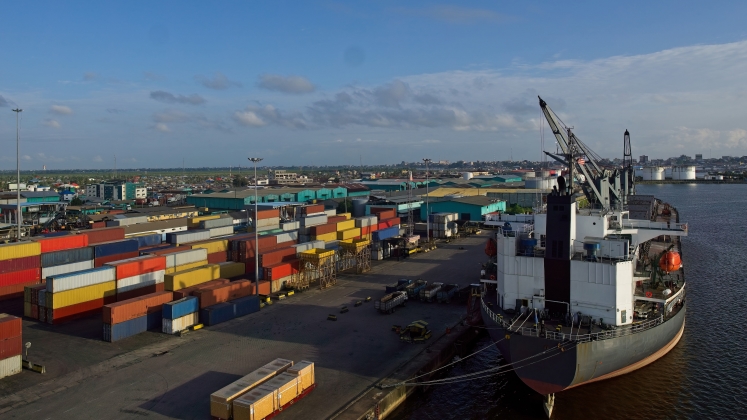
In The Third Globalization, Dan Breznitz and John Zysman gather leading political economists to assess the prospects for growth and prosperity among advanced industrial nations. The contributors aim to examine the core transformations in the economies of advanced countries, the character of the challenge from emerging economies, and the varied policy responses of the advanced countries. This is a consistently well written and tightly organized book with policy-maker appeal, writes Steve Coulter.
 The Third Globalization: Can Wealthy Nations Stay Rich in the Twenty-First Century? Dan Breznitz and John Zysman. Oxford University Press. March 2013.
The Third Globalization: Can Wealthy Nations Stay Rich in the Twenty-First Century? Dan Breznitz and John Zysman. Oxford University Press. March 2013.
After decades of being told to back off and let market forces work their magic, governments in rich countries are now being ushered back to centre-stage to sort out the mess left by banking blunders and re-equip their industrial bases to face the competitive challenge of emerging economies. The latter task is a relatively new one – so new that many in the West don’t yet realize how urgent it is. But it is there all the same, and the future prosperity of rich societies rests on whether their governments can rise to the challenge.
That, in a nutshell, is the argument presented by Dan Breznitz and John Zysman in their fascinating new book, which mixes political economy with advice on industrial policy. Rich country states, in their eyes, face a ‘double bind’. They are called on simultaneously to unleash market forces to spur creative capitalism, while also intervening regularly to correct malfunctioning markets and achieve certain social or environmental goals. Markets must be set free, but also saved from themselves. But what can policymakers actually achieve, and where do they draw the line between intervention and interference?
Breznitz and Zysman offer a sort of guidebook for this, or at least a framework for understanding some of the trade-offs involved. Even before the financial crisis, states were being told by globalization theorists that information and communications technology (ICT) was enabling an unbundling of industry that encouraged different countries and regions to specialize in different stages of the production process. The key to this ‘decomposition’ of industry has been the growth of global service providers, which are now essential to value creation. Global companies are increasingly able to organize production around clusters of excellence and low costs in developing countries. Political pressure for deregulation in many western countries made offshoring of jobs seem like a natural strategy.
In the aftermath of the financial crisis the world therefore faces a ‘third phase’ of globalization (the first being the late nineteenth century era of free trade; the second being the post-1970s period), marked by economic power slipping away from the rich west to the emerging East. This brings with it a host of new challenges: how can the global economic system be governed; how will fragmented markets function; how can the gains be distributed widely?

The essays in this book explore how states have responded to these challenges and how this process should be analysed by political economists. The book is organized into two main sections. The first shows how the ICT revolution has encouraged many firms to move much manufacturing and services processes to China and India respectively, leaving behind (for the moment) only the more sophisticated R&D and marketing operations. ICT is of critical importance because it transforms the organization and competitive basis of entire industries. For example, auto-makers in China and elsewhere have benefited hugely from the ability to scatter the various stages of design, development and production of cars widely according to where comparative advantage is greatest. In service industries, moreover, ICT may also have solved ‘Baumol’s cost disease’, which held that productivity improvements in services will only ever be incremental and minimal.
The second section delves into how governments in rich states are responding to the third globalization. As might be expected in a book by political economists, these responses vary according to nationally-specific institutions and policy legacies and not all nations are adapting well. France, according to Jonah Levy, is drifting aimlessly as its policymakers are unable to pursue the old model of state-led development yet appear unwilling to take on the vested interests that impede market-led reconstruction. The US, still in hock to neo-liberal ideas and dominated by the demands of its financial services industry according to Mark Blyth and William Lazonick, will do better than France because of its superior innovation model, but most of the rewards of this will continue to go to a narrow fragment of society. Only the Nordic countries seem set to prosper, as their social cohesion has allowed a consensual re-equipping of old industrial models along more competitive lines.
One complicating factor, explored by Mark Huberty in his chapter, ‘The Dissolution of Sectors’, is that technological change has weakened the sectoral model of understanding political preferences. These can no longer be simply read off an industry’s position in the economy as firms now deliver goods and services in a variety of ways. For example, Apple straddles several business sectors (software, hardware and music delivery), so its political preferences stem from the particular business model it has chosen, not from its place in the economy. But this means that policymakers no longer receive clear signals from business about how to run a competitive economy and they are caught between defending strategically important, but vulnerable industries from overseas competition and remaking the regulatory environment to allow new sectors to flourish.
One of the book’s great strengths is that it is consistently well written and tightly organized. Edited volumes can sometimes be a random collection of essays thrown together around a vague theme; however the editors of the The Third Globalization have selected and drilled their contributors well. The book includes a lengthy conclusion analyzing the options available to policymakers to kick-start growth. They argue that governments should bite the bullet and act purposively to foster an innovation culture based on: effective deployment of ICT-enabled service industries to support manufacturing, a reorganization of destructive short-termism in finance; and a focus on de-carbonization.
Only the state has the political resources to achieve this, but it is still unclear whether states are always up to the job. In overtly backing favored sectors, there is often the risk that ‘picking winners’ becomes ‘defending losers’. Nevertheless, if The Third Globalization has any impact in chipping away at the dogma that markets always know best then it will have done a fine job.
—————————————
Dr Steve Coulter is a Research Officer in the European Institute and an Associate Fellow at the Social Market Foundation think tank. At the LSE he teaches comparative political economy and researches European political economy and industrial policy. Read more reviews by Steve.







